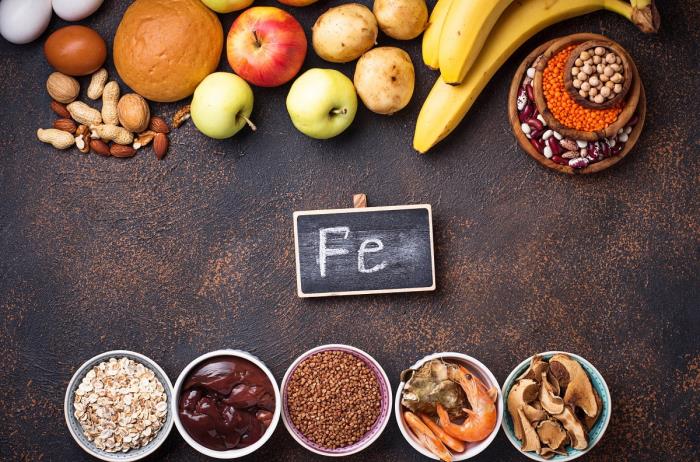Post-revision bariatric surgery nutrition plays a crucial role in the recovery process and long-term weight management for patients. After undergoing a revision procedure, the body needs time to heal and adjust, making it essential to follow a well-balanced diet that promotes healing and supports the body’s nutritional needs.
Following a structured nutrition plan can help patients maximize their surgical outcomes and achieve sustained weight loss. It's important for individuals to work closely with a registered dietitian or nutritionist specializing in bariatric surgery to develop a personalized eating plan.
The Importance of Nutrition for Healing After Surgery
Nutrition is vital for healing after any surgical procedure, and this is especially true for patients who have undergone revision bariatric surgery. A well-balanced diet rich in essential nutrients supports the body’s natural healing processes, promotes tissue repair, and helps maintain the immune system. Proper nutrition can reduce the risk of complications such as infections and promote quicker recovery times, allowing patients to return to their daily activities sooner.
In the post-operative phase, patients often experience changes in appetite and digestive function. Therefore, it is essential to focus on nutrient-dense foods that provide maximum benefits with smaller portion sizes. A combination of vitamins, minerals, and macronutrients will ensure that the body receives the necessary support for optimal recovery. Monitoring nutrient intake and making informed food choices can significantly impact the overall recovery journey and long-term health.
Protein: Key Nutrient for Recovery
Protein is one of the most important nutrients for recovery after revision bariatric surgery. It plays a critical role in tissue repair, muscle maintenance, and overall healing. After surgery, patients often have higher protein requirements to support their body’s recovery and to prevent muscle loss during the healing process. Adequate protein intake can also help manage hunger levels and support weight loss goals, making it an essential component of the post-operative diet.

Incorporating a variety of lean protein sources into the diet can help patients meet their protein needs. Options such as poultry, fish, eggs, low-fat dairy products, legumes, and plant-based proteins can be easily included in meals and snacks. For patients who struggle to consume enough protein through whole foods alone, protein supplements such as shakes or powders can be beneficial in meeting daily requirements and aiding recovery.
Incorporating Lean Proteins into Your Diet
Incorporating lean proteins into the post-revision bariatric diet can significantly enhance recovery and support weight loss. Lean proteins provide the necessary amino acids that are crucial for healing without adding excessive calories or unhealthy fats. This makes them an ideal choice for patients aiming to maintain their weight loss and overall health after surgery. Including a variety of protein sources not only helps in meeting nutritional needs but also prevents dietary boredom.
Practical ways to incorporate lean proteins include preparing grilled chicken or turkey, fish dishes, and plant-based protein options like lentils and quinoa. Patients should aim to include a source of protein in every meal and snack, focusing on portion control and mindful eating. This approach ensures that they receive adequate nutrition while adhering to their post-operative guidelines and supports their long-term weight management goals.
Hydration: Staying Hydrated for Optimal Healing
Staying hydrated is another critical aspect of post-revision bariatric surgery nutrition. Proper hydration supports numerous bodily functions, including digestion, nutrient absorption, and overall recovery. Adequate fluid intake is essential for maintaining healthy bodily functions and can help alleviate discomfort during the healing process. Dehydration can lead to complications such as kidney issues and hinder recovery, making it vital for patients to prioritize their fluid intake.

Patients should focus on consuming clear fluids in the initial stages post-surgery, gradually reintroducing other liquids and eventually solid foods as tolerated. Water, herbal teas, and low-calorie electrolyte beverages are excellent options for hydration. It is essential to sip fluids throughout the day rather than consuming large amounts at once, as this can prevent discomfort and support effective hydration. Monitoring hydration levels and adjusting fluid intake based on individual needs will contribute significantly to optimal healing and overall well-being.
Essential Vitamins and Minerals After Revision Surgery
After revision bariatric surgery, ensuring adequate intake of essential vitamins and minerals is crucial for optimal recovery and long-term health. Key nutrients include vitamin D, calcium, iron, and vitamin B12, which play vital roles in bone health, immune function, and energy levels. Due to the altered digestive system following surgery, many patients may experience difficulties absorbing these nutrients from food alone. Therefore, regular monitoring of nutrient levels and appropriate supplementation is often necessary to prevent deficiencies and support overall well-being.
The Role of Vitamin B12 in Post-Surgery Recovery
Vitamin B12 is particularly important for patients recovering from revision bariatric surgery, as it is vital for red blood cell formation, neurological function, and DNA synthesis. Since B12 is primarily absorbed in the stomach and can be difficult to obtain from food after certain procedures, supplementation is often necessary. Patients should work closely with their healthcare providers to determine appropriate dosing and may require periodic blood tests to monitor levels, as deficiencies can lead to serious complications such as anemia and nerve damage.
Importance of Iron and Calcium for Healing
Iron and calcium are two critical minerals that play significant roles in recovery after revision bariatric surgery. Iron is essential for producing hemoglobin and preventing anemia, while calcium supports bone health and prevents osteoporosis. Post-surgery, patients may experience changes in their ability to absorb these nutrients, making it vital to consume iron-rich foods, such as lean meats and legumes, along with calcium sources like dairy or fortified alternatives. Supplementation may also be necessary, especially in the initial months post-surgery, and should be guided by healthcare professionals.

Managing Portion Sizes and Meal Frequency
Managing portion sizes and meal frequency is crucial for patients recovering from revision bariatric surgery. Smaller, more frequent meals help accommodate the altered stomach capacity and improve nutrient absorption. It is typically recommended to eat three small meals and two to three snacks throughout the day. Patients should focus on high-protein foods and prioritize nutrient-dense options while avoiding sugary and high-fat items. This approach not only aids in weight loss but also enhances satiety and prevents feelings of hunger, supporting a successful recovery journey.
Foods to Avoid After Revision Bariatric Surgery
Post-revision bariatric surgery, certain foods should be avoided to ensure a smooth recovery and prevent complications. High-sugar foods, such as sweets and sugary drinks, can trigger dumping syndrome, while fried and greasy foods may cause gastrointestinal distress. Additionally, patients should avoid high-fiber foods during the early recovery phase, as they can lead to blockages or discomfort. Processed and high-carb items should also be limited to promote better weight loss outcomes and overall digestive health.
Reintroducing Solid Foods: A Step-by-Step Guide
Reintroducing solid foods after revision bariatric surgery requires a careful, step-by-step approach to ensure safety and comfort. Initially, patients should start with clear liquids and progress to full liquids, followed by pureed foods over several weeks. Once tolerated, soft foods can be introduced, focusing on protein-rich options such as eggs, yogurt, and soft fruits. Finally, solid foods can be incorporated gradually, emphasizing lean proteins, vegetables, and whole grains while continuing to monitor for any adverse reactions.
The Role of Fiber in Digestive Health Post-Surgery
Fiber plays a critical role in digestive health for patients recovering from revision bariatric surgery. It helps maintain regular bowel movements and prevents constipation, a common issue post-surgery. Once solid foods are reintroduced, patients should gradually increase their fiber intake through fruits, vegetables, and whole grains. However, it is important to do this slowly, as excessive fiber intake too soon can lead to discomfort or blockages. Hydration is equally vital, as it supports fiber's effectiveness in promoting healthy digestion.
Avoiding Dumping Syndrome: Dietary Tips
Dumping syndrome is a potential concern for patients after revision bariatric surgery, characterized by rapid gastric emptying and symptoms such as nausea, diarrhea, and dizziness. To avoid this, patients should focus on consuming small, frequent meals that are low in sugar and high in protein. Chewing food thoroughly and eating slowly can help facilitate digestion. Additionally, it is advisable to avoid drinking liquids during meals, as this can contribute to rapid gastric emptying. Maintaining a balanced diet rich in whole foods can also reduce the risk of developing dumping syndrome.
How to Handle Food Sensitivities After Surgery
After revision bariatric surgery, some patients may experience food sensitivities or intolerances due to changes in their digestive system. It is important to identify and track any problematic foods, which can include dairy, gluten, or high-fat items. Keeping a food diary can help pinpoint specific triggers. If a food sensitivity is suspected, patients should eliminate the suspected item from their diet and consult with their healthcare provider or a registered dietitian for personalized advice on managing their diet and ensuring adequate nutrient intake.
Supplements for Supporting Post-Surgery Recovery
Post-surgery recovery often necessitates the use of supplements to ensure patients receive adequate nutrition after revision bariatric surgery. Multivitamins tailored for bariatric patients are commonly recommended to cover potential deficiencies in essential vitamins and minerals. Calcium and vitamin D supplements may also be necessary for bone health, alongside iron and vitamin B12, depending on individual needs. Regular follow-ups with healthcare providers are crucial to monitor nutrient levels and adjust supplementation as needed, ensuring optimal recovery and long-term health.
Healthy Snacks for Sustained Energy and Healing
Choosing healthy snacks is essential for patients recovering from revision bariatric surgery to maintain energy levels and support the healing process. Opting for nutrient-dense snacks like Greek yogurt, cottage cheese, or protein shakes can provide essential protein necessary for recovery. Additionally, incorporating fruits such as berries or bananas, along with nuts and seeds, can offer healthy fats and fiber, promoting satiety. Keeping snacks portion-controlled and balanced will help avoid excessive calorie intake while ensuring patients receive the nutrition they need for optimal healing.
Long-Term Nutritional Goals After Revision Surgery
Establishing long-term nutritional goals after revision bariatric surgery is crucial for maintaining health and achieving weight management success. Patients should focus on achieving and maintaining a balanced diet that includes a variety of nutrient-dense foods, with an emphasis on protein intake, healthy fats, and complex carbohydrates. Setting specific, measurable goals, such as incorporating more fruits and vegetables into daily meals or limiting processed foods, can facilitate healthy eating habits. Regular follow-ups with healthcare providers can help track progress and make necessary adjustments to these goals over time.
Working with a Dietitian for a Tailored Nutrition Plan
Collaborating with a registered dietitian can significantly enhance post-revision surgery recovery by creating a tailored nutrition plan that meets individual needs. A dietitian can provide personalized guidance on nutrient intake, portion sizes, and meal planning, taking into account personal preferences and any food sensitivities. They can also help patients navigate challenges such as reintroducing solid foods or managing potential deficiencies, ensuring that patients receive adequate nutrition while promoting healthy eating habits for long-term success.
Common Nutritional Mistakes to Avoid During Recovery
Avoiding common nutritional mistakes during recovery from revision bariatric surgery is essential for optimal healing and long-term success. One major mistake is neglecting protein intake, which can hinder recovery and lead to muscle loss. Additionally, consuming too many high-sugar or high-fat foods can trigger dumping syndrome or slow weight loss progress. Skipping meals or relying on convenience foods can also result in inadequate nutrient intake. Patients should focus on meal planning, prioritize balanced meals, and stay mindful of their food choices to avoid these pitfalls and support their recovery journey.
Exploring Alternatives to Revision Bariatric Surgery
Discover various alternatives to traditional revision bariatric surgery, including dietary modifications, lifestyle changes, and non-surgical procedures. These options can help individuals achieve their weight loss goals without undergoing additional surgery, offering a less invasive approach to weight management.
The Role of Physical Therapy in Bariatric Surgery Recovery
Learn about the crucial role of physical therapy in the recovery process following bariatric surgery. A tailored physical therapy program can enhance mobility, promote healing, and help patients develop the strength needed to maintain a healthier lifestyle after surgery.
Best Revision Bariatric Surgery in India
The Best Revision Bariatric Surgery in India helps patients who have not achieved the desired results from their initial weight loss surgery, offering advanced techniques to improve outcomes and ensure long-term success.
Best Revision Bariatric Hospitals in India
The Best Revision Bariatric Hospitals in India are equipped with modern technology and skilled teams, providing comprehensive care that includes pre-surgery assessments and post-surgical follow-up for optimal recovery.
Revision Bariatric Surgery Cost in India
The Revision Bariatric Surgery Cost in India is competitive and transparent, offering patients affordable treatment options while maintaining the highest standards of care and personalized attention at top hospitals.
Best Revision Bariatric Surgeons in India
The Best Revision Bariatric Surgeons in India have extensive experience in weight loss revision procedures, ensuring precise surgical techniques and individualized patient care to achieve the best possible outcomes.
FAQs About Nutrition After Revision Bariatric Surgery
What dietary changes should I expect after revision surgery?
Patients should expect to follow a modified diet that starts with clear liquids, progresses to pureed foods, and eventually incorporates solid foods, focusing on high-protein, nutrient-dense options while avoiding high-sugar and high-fat items.
How can I ensure I'm getting enough protein post-surgery?
Incorporating protein-rich foods such as lean meats, eggs, dairy, and plant-based proteins is essential. Protein supplements, like shakes or bars, can also help meet daily protein requirements.
Q: Are there any specific foods to avoid after surgery?
A: Yes, it is advisable to avoid high-sugar foods, greasy or fried items, and foods that may cause blockages, such as tough meats or high-fiber items during the initial recovery phase.
How important is hydration after revision bariatric surgery?
Hydration is extremely important, as it supports digestion and overall health. Patients should aim to drink water and other low-calorie fluids throughout the day, avoiding drinking during meals to prevent discomfort.
When can I start reintroducing solid foods?
Solid foods can typically be reintroduced after a few weeks, following a step-by-step approach that starts with clear liquids and progresses through pureed and soft foods before solid foods are added back into the diet. Always consult with a healthcare provider for personalized guidance.